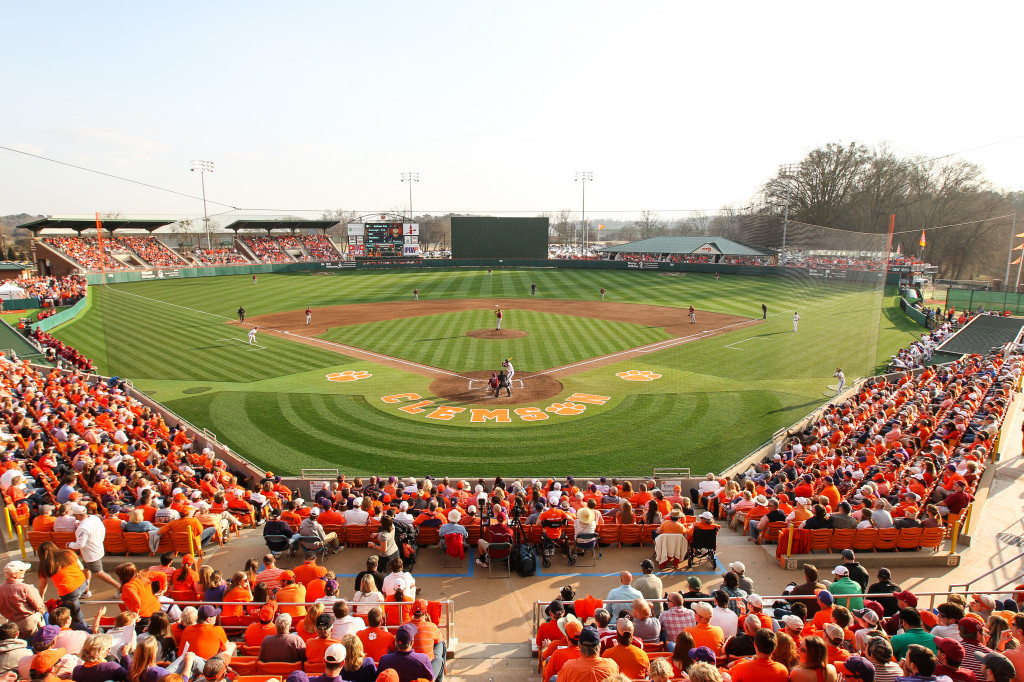Help from the future


Doug Kinsmore Stadium, home of the Clemson Tigers’ baseball team
The athletic grounds staff at Clemson (S.C.) University maintains some of the most recognizable 80 acres of turf in collegiate sports, but only has a full-time staff of five. Luckily there’s a quality turfgrass program at the school with students ready to work that fills out the staff.
Kevin Bell, known as K.C., Clemson’s assistant supervisor of athletic grounds, transferred from Penn State to Clemson as a student in 1995 and hasn’t left South Carolina since. Bell says that the full-time athletic grounds staff isn’t typical because they each focus on either the baseball field, football field or soccer field but they all work on each of the fields.

Clemson’s football home Memorial Stadium, also known as Death Valley
Bell’s focus is on The Walker Course for golf and the football team’s Memorial Stadium, aka Death Valley. On all of the fields he is responsible for the irrigations systems and making the most of the chemical applications.
With that much on his plate Bell says that the student staff is extremely beneficial to him and the rest of the full-time staff.
“With the amount of acreage we are taking care of there’s no way we could keep up with all of the trim work, mowing and cultural practices during the summer without them,” says Bell. “The students are the backbone of our labor, and the more of them we have at our disposal the more it frees us up to do other things.”
Typically each semester there are eight to 10 students that work at most 28 hours per week, a figure mandated by the university, for the grounds staff. They are split as evenly as possible to work in the mornings and afternoons. It’s not always fun work for the newest employees.

Since 1987 Clemson’s soccer teams have played its home games on Historic Riggs Field
“A lot of the students when they first come in they don’t really like that they are weeding or running the edger most of the time,” says Bell. “We tell them ‘Don’t worry, you’ll move to mowing really quick.”
The longer a student is working for the grounds staff the more responsibility Bell or his boss, Mike Echols, supervisor of athletic grounds at Clemson, will give them. Their effort while working with the grounds staff isn’t the only factor that gets them more responsibility.
“As they are with us, definitely not in the first year, usually by their second year we know who’s slacking,” says Bell. “We know where they are in school too because the students have been known to call each other out when one of them gets a bad grade on a test.”
Once the full-time staff feels comfortable with a student they will send them out with a student crew to trim and edge parts of the 10 additional acres of turf beds surrounding athletic venues, like the basketball team’s Littlejohn Coliseum.
From there, depending on what they’re interested in, Echols lets them have some choice what type of field they want to focus on. Bell says normally more students are interested in working on the baseball field rather than in the football stadium because there’s more to do between the turf and the infield skin.
Eventually they trust them with even more responsibility and by their junior or senior year they put students in charge of other students’ work schedule or get the baseball field’s infield skin ready for a game or finding a specific mowing pattern to burn into the grass.
“They’re working like they will when they get out of school,” adds Bell.
Photos provided by Kevin Bell










